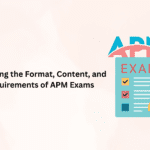Write every day
The first advice given during this workshop is to write every day. It is by forging that one becomes a blacksmith, and it is while writing that one becomes a good writer, or at least a professional writer, what are a doctoral student, and the researcher in a general way. Writing is a job, and if it is useful to train, it is especially recommended to write, again and again, every day for only half an hour. For this, set a time slot, every day to devote to writing (in all its forms), perhaps a solution, especially for those who have trouble getting started! For more information you can check at customwritingservice.com
Writing as a process
To fully understand what writing is, and not to burn the steps, it is useful to consider writing as a process of three or four phases minimum. To begin with, we can break down the writing process into two stages: creative and synthetic writing / analytical and critical writing. The first, without worrying about the details, goes to the essential. The second, on the contrary, goes into detail, and focuses on structuring the text and detailing the argumentation, the content, etc.
The essential interest of becoming aware of writing as a process is to avoid wanting to do everything at the same time: wanting to synthesize and detail in a critical or analytical way at the same time is like wanting to do two contradictory operations at the same time.
First, it is appropriate to write to bring out the ideas, then we rectify what we wrote, we specify what we wanted to say, in a second time. We see the image of a writing in successive layers that asks not to be too perfectionist, at least not all the time. Not at first, but rather at the end.
- 1st stage: This is the synthetic writing: write to push out ideas, without worrying about the details. One of the writing techniques for this phase: free writing (see below).
- 2nd stage: In the second phase, we are interested in the content, structure and arguments. General Council: be as clear as possible, to facilitate reading. For example, avoid metaphors, not only to be evocative but clear. It is up to the author to make the effort to be clear, and not to the reader to guess what I meant!
- 3rd Phase: The third phase of writing aims to revise the language and style. The goal, in all cases, is to lighten the text, to vary and to specify what one has written.
- 4th stage: Finally, in the final phase, often painful, but essential, come the worries of the layout, the revision of references and bibliography, as well as punctuation (consistent throughout the other of course!).
The technique of free writing

To unlock some anxieties about writing, to start the writing process and regain some fluidity, there are different writing techniques, including free writing. To do at the beginning of a work period, or to make a first draft of text. Why ? Because it’s easier to start writing from a text, even rough, than from scratch. This technique also makes it possible to be clear on what one wants to say, because it makes it possible to be synthetic. This type of writing provides raw material to be shaped later. For having tested it several times since the workshop, I must admit that this technique works, at least for me, and that in addition to unblock the writing process, when it is difficult to get there. To put, can also synthesize very quickly and efficiently what we mean. I used this technique to synthesize what I wanted to say in an article, and what I wanted to say in an upcoming paper, and in 15 minutes each time I was clear on where I wanted to go … Amazing!
For those who would like to try, here is the free writing method:
- Take a starting point (theme, concept, and phrase)
- Put a time limit (10, 15 or 20 minutes)
- Write everything that comes to mind, preferably by hand
- Do not stop, for no reason.
- No correction
- Do not worry about grammar, spelling, reference, or even structure: avoid any censorship of thought.
Difference between a thesis, an article and a communication
The thesis is more elaborate than an article: one quotes in the detail, one unrolls the arguments, one details the context, one documents. There is a pedagogical dimension in the writing of a thesis.
In an article, we delete everything that is already known, we limit ourselves to a central argument, which we prove with the help of very condensed arguments. The effort is logical rather than educational.







